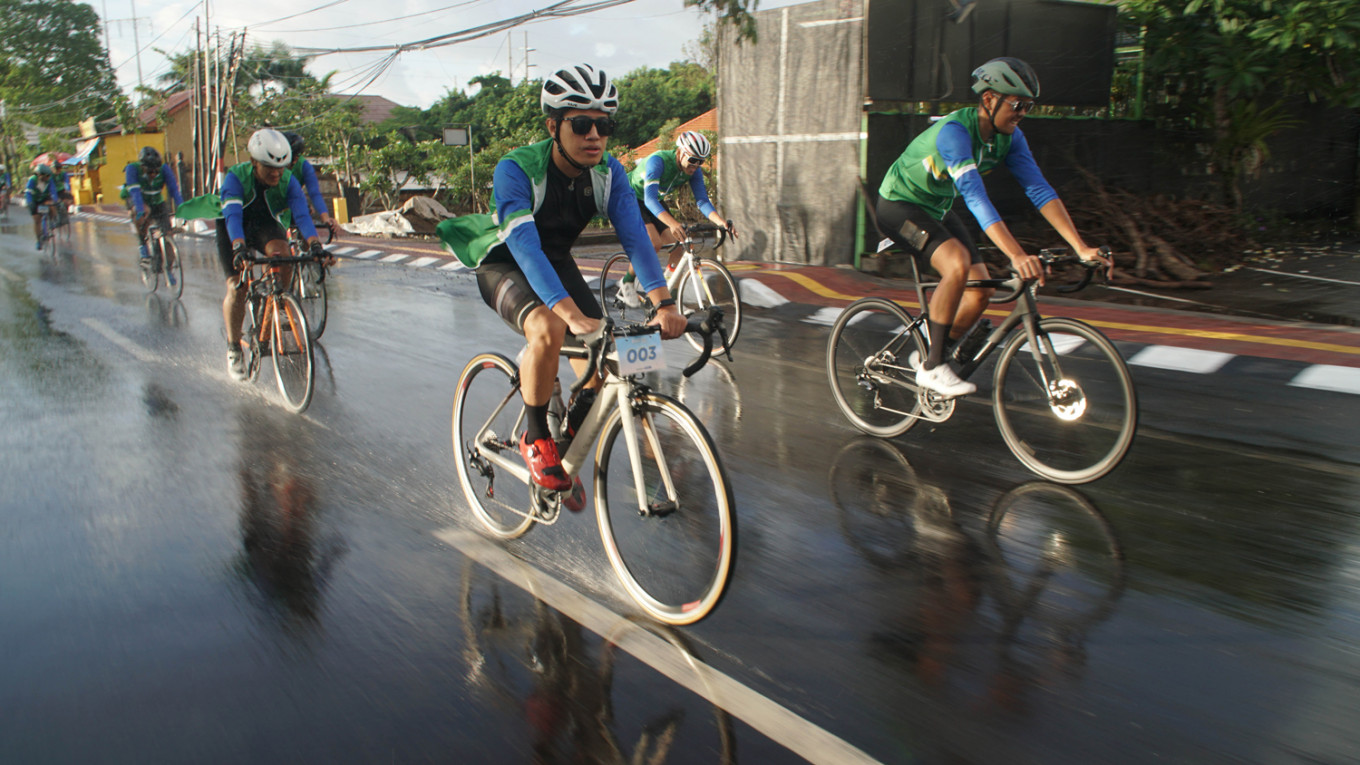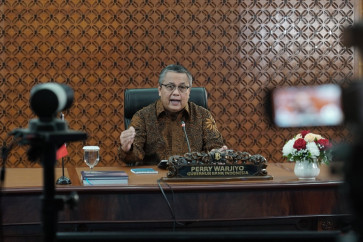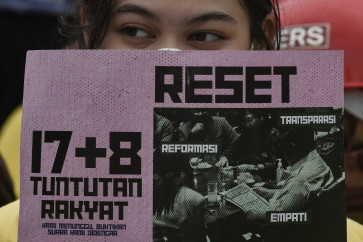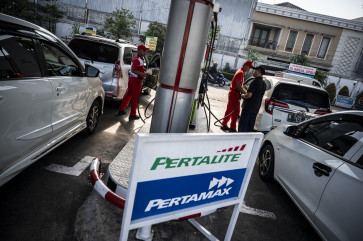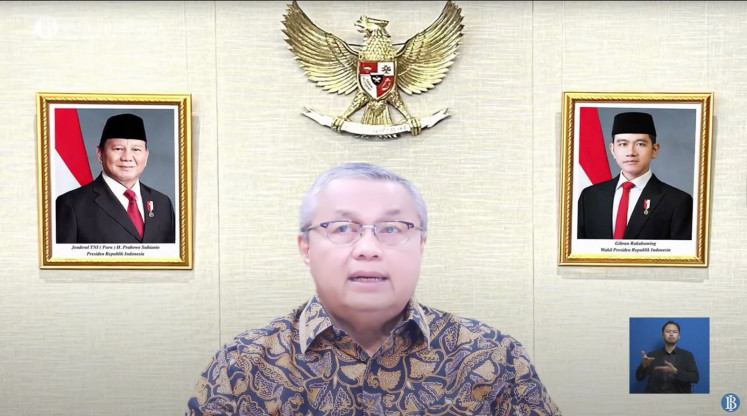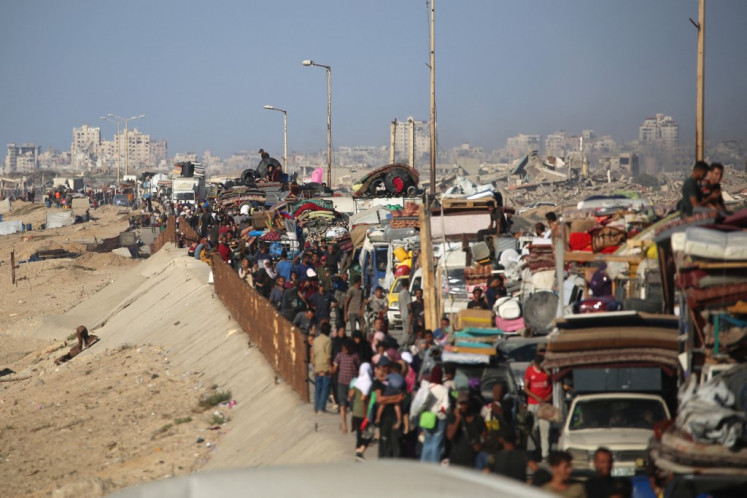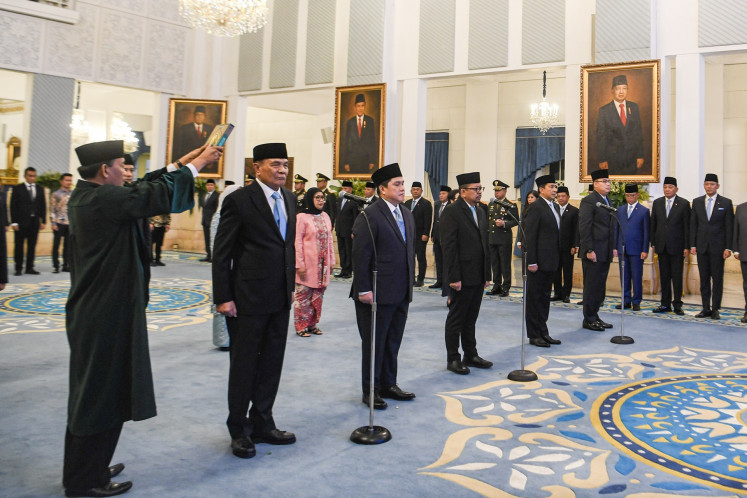Popular Reads
Top Results
Can't find what you're looking for?
View all search resultsPopular Reads
Top Results
Can't find what you're looking for?
View all search resultsReconstructing the event, curriculum calendar
Ideally, there should at least be one public tourism college in each province to harness the potentials of local human resources in supporting the tourist industry
Change text size
Gift Premium Articles
to Anyone
T
he appointment of Sandiaga Uno as tourism and creative economy minister in place of Wishnutama Kusubandio was indeed surprising, considering that the latter’s programs were still ongoing.
Among the programs was the use of influencers to promote tourism, which cost the ministry Rp 72 billion, incentives for tourism players, budget reallocation, the launch of Indonesia Care, which provides a guideline for safe travel during the pandemic, the publication of the book Hotel Health Protocols for Medical Personnel and the Book Now Travel Later scheme.
Unfortunately, the programs have not significantly helped Indonesian tourism survive, if not recover. Based on the latest data from Statistics Indonesia (BPS), the number of tourist arrivals dropped sharply last year due to the pandemic, from normally 800,000-1 million in February and March to only 400,000. As the pandemic worsened, the figure fell to 150,000-160,000 per month between April and October.
President Joko “Jokowi” Widodo expects tourism to cushion the dwindling economy by instructing the tourism ministry to move quickly in preparing super priority destinations. The preparations include infrastructure, from the upstream to the downstream, arts and cultural events and human resources capable of organizing and managing them, and so on.
Of immediate importance is the calendar of events (COE) for each destination, especially the five super priority destinations, namely Lake Toba, Likupang, Borobudur, Mandalika and Labuan Bajo. The COE is a relatively instant solution, with a focus on the five super priority tourist destinations.
The foundation of the Indonesian COE was actually prepared and promoted in a large-scale during the term of Arief Yahya as tourism minister in 2014-2019. Then, hundreds of the best events across 34 provinces were prepared. They were divided into festivals and cultural events, entertainment events, and sporting events of the highest quality through very strict curation by experts. Unfortunately, when the pandemic struck, mitigation efforts did not work. Changing the format of the events became a challenge and almost all of these events had to be canceled.
It is quite obvious that our tourist industry prioritizes quantity, such as foreign exchange revenue, job opportunities, tourist arrivals and so on, while the qualitative aspects, which can be seen from positive changes in the quality of human resources, tend to be ignored. For quality events with high attractiveness such as Tomorrow Land or Coachella, competent, high-quality human resources are imperative.
For a culturally diverse and geographically vast country like Indonesia, tourism should be huge potential for the country's bid to collect foreign exchange revenue. On Dedi Corbuzier's YouTube podcast on Nov. 18, 2020, then-tourism minister Wishnutama explained the irony of Indonesia’s tourism potential. Despite its huge resources, Indonesia trails behind its ASEAN neighbors in attracting tourist arrivals. Singapore recorded around 20 million tourist arrivals, Malaysia 25 million and Thailand 39 million annually before the COVID-19 pandemic, against Indonesia’s 16 million.
The large gap makes the creative pattern of managing events, especially COE, more important than ever. COE must be continuously explored and integrated to achieve the best quality so that it can become a solid tourism strategy to realize the target of 18-20 million tourist arrivals per annum. Support from other ministries will accelerate the achievement of the target.
Secretary-general of the Association of Indonesian Tourism Higher Education Institutions (Hildiktipari), Diena M. Lemy, told a focus group discussion in October 2020 that the tourist industry was one of the fastest growing sectors in the last 25 years. There are more than 151 colleges offering tourism degrees in Indonesia, with a total of 246 study programs.
The disparity between tourism potentials and the availability and quality of human resources needs to be solved. Ideally, there should at least be one public tourism college in each province to harness the potentials of local human resources in supporting the tourist industry. Until now, the government only manages tourism colleges in Bandung, Bali, Makassar, Lombok, Medan and Palembang.
Another problem in human resources is a lack of study programs that specifically delve into tourism-related events. The potentials of tourism in the aspect of arts and culture, for example, will remain unexplored and untapped.
The deepening of arts and culture events, including sports tourism and music performance, is still considered low despite growth in the meeting, incentive, convention and exhibition (MICE) industry. Arts and cultural events can therefore be incorporated in the curriculum of tourism colleges.
Managing COE as an integrated unit is a huge challenge for Indonesia. Sustainable COE management is the key to success in developing tourism, apart from adaptation and collaboration.
Wishnutama, supported by his deputy Angela Tanoesoedibjo, laid a foundation for tourism development. Now the baton has been handed to Sandiaga, who is expected to offer fresh concepts of innovation, adaptation and collaboration that will help the ministry create a "new wave, new hope and new income".
***
The writer is a part-time lecturer for the event program, Universitas Prasetiya Mulya.

